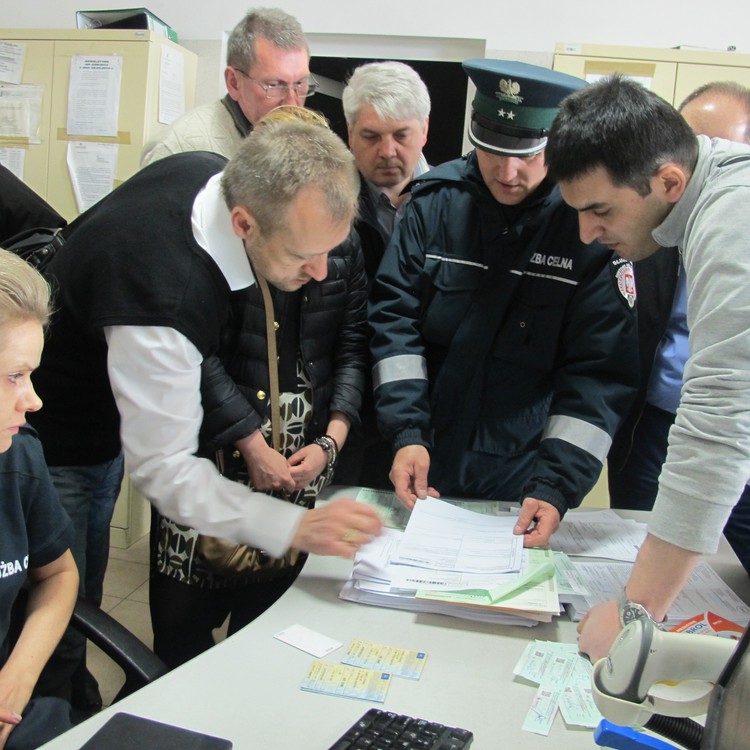Over the last two years, 475 border guards and customs officials from six Eastern Partnership (EaP) countries have taken part in various training activities organised by Frontex on topics that include detection of falsified documents, human trafficking, risk analysis and benefits of institutional transparency.
News
Two years of capacity building in Eastern Partnership countries
2016-08-18

The Eastern Partnership Integrated Border Management Capacity Building Project
is a European Union-funded activity coordinated by Frontex, which helps to
improve the movement of persons and goods across borders while stopping any
illegal activity. It is based on the idea of Integrated Border Management,
which relies on coordination and cooperation among all the relevant authorities
and agencies involved in border security and trade facilitation to establish
effective and coordinated border management.
The six Eastern Partnership countries are Armenia, Azerbaijan, Belarus,
Georgia, Moldova and Ukraine.
The project addresses national agencies involved in border management, such as
border police and customs. Those ultimately benefiting from improved border
management include not only travellers and commercial operators crossing
borders, but also people in need of special protection such as asylum seekers,
potential victims of human trafficking, and unaccompanied minors.
Frontex provides training support based on the specific needs of each
participating country. The creation of a modern training system according to EU
best practices; improved process of border crossing for passengers, traders and
freight; raising awareness and support to the fight against corruption and
safeguarding the fundamental rights of persons crossing the borders are among
the main goals of the project.
The project is implemented in cooperation with three partner organisations: The
World Customs Organization (WCO), the International Organization for Migration
(IOM) and the International Centre for Migration Policy and Development (ICMPD).
It will run until 2017 and has a budget of EUR 4.5 mln.